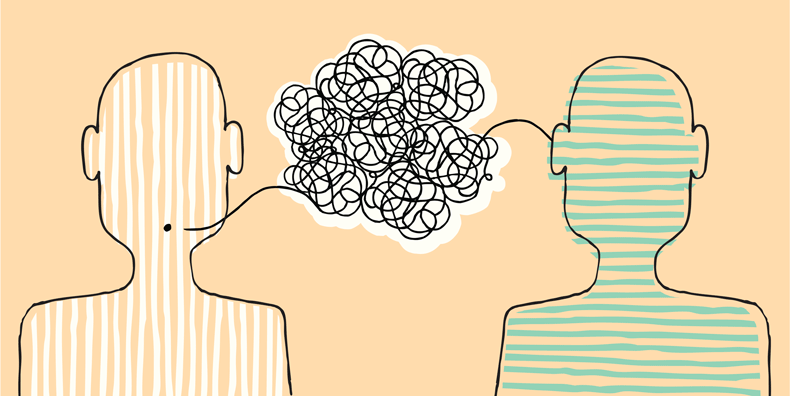Disclosing a bipolar diagnosis isn’t easy — but it can lead to stronger relationships, self-acceptance, and surprising support.
When it comes to sharing your bipolar disorder diagnosis, “coming out” is hard to do — yet it may be the best thing for you. I stayed “closeted” about my mental health condition for more than 10 years, but my bipolar — and the inexplicably unusual behavior that came with it — “outed” me many times.
I hoped and prayed that people might think I was just having a “bad day” when I behaved erratically, but that was likely wishful thinking. I started to wonder if disclosing my diagnosis might actually benefit me. I weighed the pros and cons. The pros won.
8 Benefits of Disclosing Your Bipolar Diagnosis
Once I stopped hiding and started being honest, I realized there were more upsides than I ever expected. Here are some of the ways that opening up has helped me — and might help you, too.
1. Connecting With Others and Creating a Safe Community
Staying in the closet about my bipolar made me lonely. Coming out — and no longer being ashamed and embarrassed about having it — allowed me to once again reconnect with others. I could engage with people I knew and also develop new relationships, especially with those who are also living with mental health conditions.
Additionally, I had the opportunity to volunteer and help this community. I surrounded myself with a “safe community” that I knew wouldn’t stigmatize me and my bipolar disorder.
2. Feeling Proud of Who You Are — Bipolar and All
I wanted to show people that I was proud of who I was: Even if bipolar was part of me, it was not all of me.
I refused to let my mental health condition define me, as I had done for so many years. Coming out actually made me stronger — it was empowering to take control of my health and life. I also grew to appreciate how empathetic and compassionate the bipolar community is.
3. Being Free From Hiding and Pretending You’re Okay
I was tired of pretending that I was well when I wasn’t. I wanted my friends and family to better understand mental health conditions like mine. By being honest, I could promote greater understanding of what it’s like to have bipolar disorder.
4. Making Amends for Behavior While Unwell
My bipolar disorder caused me to hurt people unintentionally, through my words and my actions. After being diagnosed, I wanted to apologize to the people I had hurt while I was unwell.
I also wanted to relieve myself of the burden of guilt I’d carried for so long. I wanted people to understand that my actions had not been intentional. Most people were compassionate, and our friendships grew stronger.
5. Growing Your Support Network to Include Others With Mental Health Conditions
Staying in the closet had also cut me off from a lot of my friends. After being diagnosed, I wanted to reconnect with them in an honest and genuine way. I wanted them to know all of me, the real me.
Disclosing my diagnosis also allowed me to include people with other mental health conditions in my support network. This has proven to be very helpful because we can relate to each other’s experiences.
Some of the friends I came out to even shared that they live with mental health conditions, too, which made me feel less alone.
6. Helping Your Supporters Find Support, Too
I wanted my supporters to also grow their own support networks. For a long time, I had forbidden my mother and father from telling anyone that I had bipolar disorder. That cut my mom off from sharing those caregiver experiences with others. In doing so, she could not get the support she also needed.
Eventually, I gave my mom permission to disclose my mental health condition to her close friends. In doing so, she was able to receive more support. Remember, supporters need support, too.
7. Rejoining Family Get-Togethers and Events
I missed too many family get-togethers because of my bipolar disorder. I’d been afraid that people would be able to tell — just by looking at me — that something was “wrong” with me. I was also afraid I might ruin the festive event we had gathered for, or that I’d embarrass my mom and dad.
I wanted my family dinners, holidays, and reunions back, and I was tired of “fake smiling” when I attended or being “sick with a cold” at home when I wasn’t up to attending.
8. Being a Role Model Through Honesty and Hope
Perhaps most importantly, I wanted to set an example for other people living with mental health conditions. I hoped to encourage them not to be embarrassed and ashamed by their conditions, as I had been for so long.
I wanted to show them that stability is possible, and I hoped that my story would inspire hope in others. Over time, as I developed ForLikeMinds — which aims to help you on your journey from hope to recovery — I increasingly recognized the opportunities to educate people about mental health.
Feeling Inspired by Others Who’ve Shared Their Diagnosis
I love that there is a National Coming Out Day for the LGBTQ+ community every October 11. It’s a day when they harness their collective courage to provide the support of their community to those who are coming out.
This act of unification really inspired me, as I’ve heard of many people who identify as part of the LGBTQ+ community experiencing depression and anxiety over the coming out process. Their courage and bravery in both coming out and facing the risks to their mental health were motivating. I wish the mental health community had its own “coming out” day.
RELATED: Accepting Your Bipolar Disorder Diagnosis
I’ve also been inspired by the examples of other people living with mental health conditions who’ve also decided to reveal it and come out. It is invaluable to know that others have done so successfully and that they’re so much better off for doing so. Their examples made me feel that my own coming out would also work out for the better.
Choosing Who to Share Your Diagnosis With First
- Close friends. They can support you when you come out to others. If your close friends are truly close friends, you shouldn’t lose them. I didn’t lose mine.
- Other friends. Expect to lose some. And if you do, they’re not worth keeping. I love that quote attributed to Dr. Seuss, “Those who matter don’t mind, and those who mind don’t matter.”
- Relatives. You may want your parents or other close family members to share the news of your bipolar diagnosis with your other relatives. We may actually care about what these relatives think: If they react with insensitivity, or, worse, with negativity, we may be hurt by their reaction, so your parents or close family can serve as a buffer.
- Social colleagues and casual acquaintances. I didn’t come out to them at first, but they may be a good source of support for you.
- Work colleagues. This is possibly the riskiest group to come out to. Employers may ignorantly fear that people with mental health conditions are less productive, have diminished mental capacity, may request special accommodations, and may need more time off. I have my own business, and disclosing my bipolar diagnosis is essential to my mission. But you should be very careful about doing so.
Ways to Share Your Diagnosis — on Your Terms
There are many ways to come out and reveal that you have bipolar disorder. You can do so slowly and quietly, or you can make it a celebration. Except for with my close friends, I hated the thought of coming out to people one by one and explaining what bipolar is, so I decided to come out to everyone else at once.
Initially, I started a mental health-related petition. I posted it on my Facebook page and encouraged people to sign it. The petition included a short bio about myself and why I started the petition, including my mental health condition. In the Facebook post, I also included a link to Diana Ross’s classic “I’m Coming Out.”
About five years later, I came out more formally with a video of my recovery journey. I was overwhelmed by the touching and encouraging feedback I received, and several people posted very supportive comments. Not one person on my Facebook page said anything negative. It made me very happy, surprised me, and greatly comforted me.
Deciding How Much to Share About Your Experience
You don’t have to disclose every single detail of your experience with bipolar. Disclose only what you’re comfortable disclosing, and don’t be afraid to tell people that you don’t feel like talking about it in more detail. After all, reliving past experiences can be triggering for some people.
Many people don’t know others who are “out” about their mental health condition, so they may be curious about your experiences. Remember, when they ask about your condition, they are not necessarily trying to pry or intentionally trying to make you feel uncomfortable.
What to Consider Before Disclosing Your Diagnosis
Coming out with mental health conditions requires you to be thick-skinned. Here are a few additional factors to keep in mind when it comes to disclosing your bipolar diagnosis:
- Stigma may increase temporarily. You might become more sensitive to stigma at first, especially as you adjust to being more open.
- Some people may treat you differently. Mental health is still a tough topic for many. You could experience gossip, exclusion, or awkward reactions — even pity.
- Family reactions may be complicated. Your loved ones may struggle with your openness, fearing judgment or feeling responsible. In some cases, they may hold stigmatizing beliefs themselves.
- Disclosure is permanent. Once you’ve shared your diagnosis, you can’t unshare it. You might have moments of doubt or regret — but let your pride in who you are carry you forward.
Sharing Your Story Can Inspire Others
Over time, your coming out should cause friends, family, and others around you to see the realities — and possibilities — of living with mental health conditions. We hope, as so many of us know, that people realize that those of us with bipolar are no different than anyone else. And that while bipolar may be part of us, it is not all of us. It’s a serious condition, just like many others that people experience.
Additionally, people may admire you for your courage and bravery, the hope and inspiration you share with others — they will see the real you — and your courageous example can serve as a powerful tool against stigma, too. . Over time, people will have to refuse the common stigmas based on your courageous example.
UPDATED: Originally posted June 4, 2019


